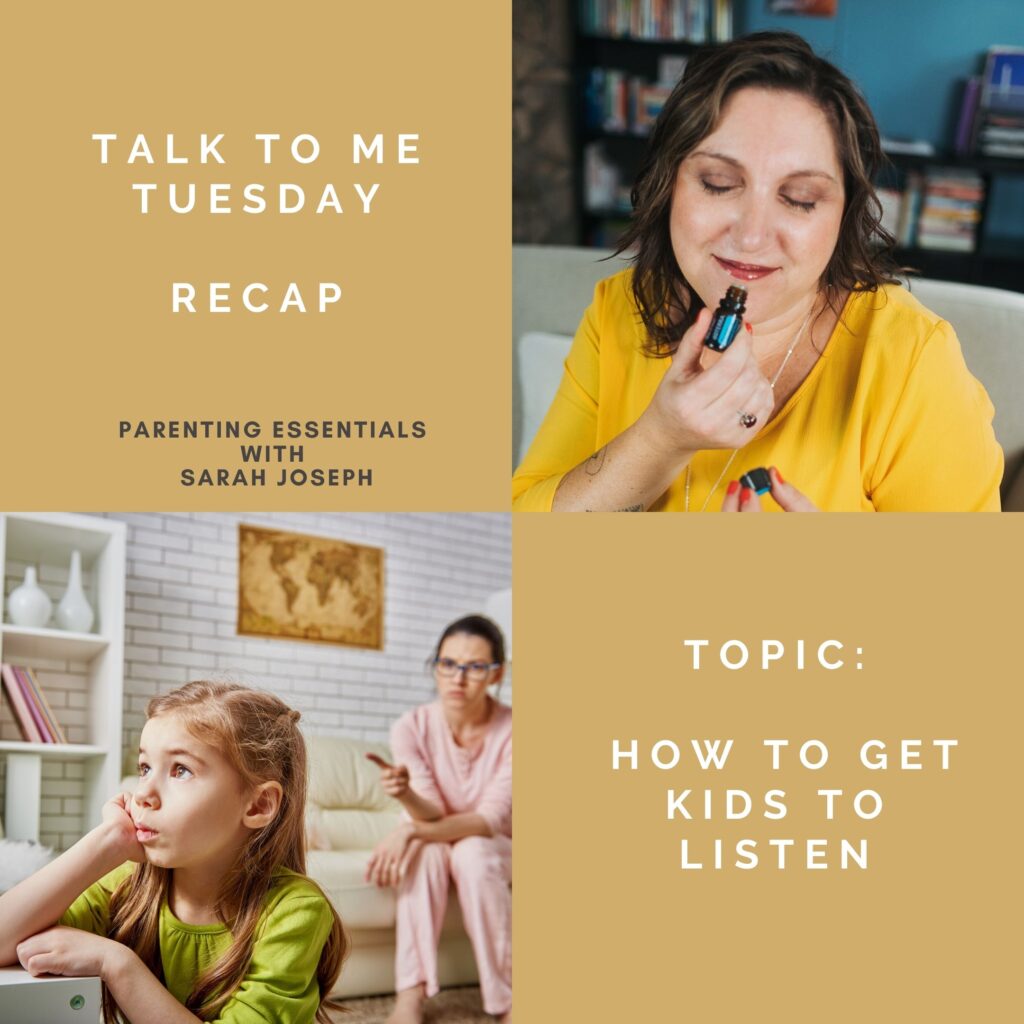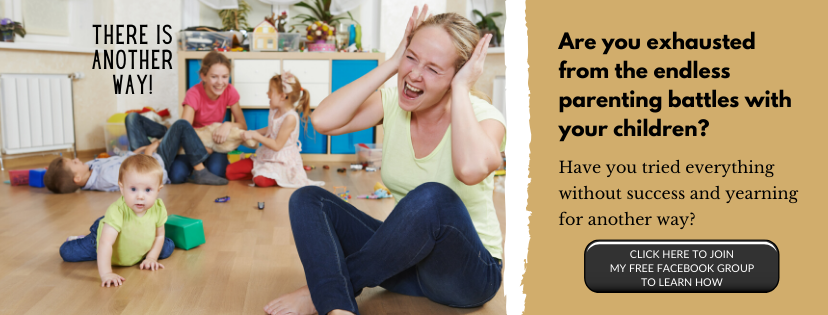Talk to me Tuesday – July 28, 2020 – Recap!
Topic: How to Get Kids to Listen

On this week’s Talk to me Tuesday, we talked about getting kids to listen. Before I jump into some parenting tips and essential oil suggestions, I asked what does “not listening” really mean? Sometimes we use “not listening” as a blanket term to describe a variety of challenges including not following directions, not obeying, power struggles, showing big emotions around requests, etc. I want you to dig a little into what you mean when you say; “my child is not listening”. It will be easier to find a solution that way.
“People listen when they feel listened to.”
~Sarah Joseph
Parenting Tips:
- Get their Attention First – Of course, there are times when our kids are so engaged in what they are doing or watching that they do ignore us. In these situations, it is important that we gain our child’s attention before uttering a request. Get down to their eye level, maybe touch a shoulder or hand, say their name and wait for acknowledgement that they hear you.
- Use Questions instead of Instructions or Demands – Have you heard of the resistance reflex? it’s basically that automatic response of “don’t tell me what to do!” in our head when someone is trying to boss us around. We all have it. Just think back to the last time someone tried to tell you how to do something in a not so gentle, encouraging tone. Yep, there it is! Kids don’t get a very good response from adult when they say “you’re not the boss of me” or “don’t tell me what to do!” so they simply pretend they didn’t hear us instead. Try asking questions, that will get them engaged. When we ask questions, the brain tries to find an answer. Pose questions like: “What do you need to do to be ready for the bus?” instead of “pack your bag!”, “what’s your plan for getting your homework done?” instead of “do your homework”, “Can I get your help in the kitchen please?” instead of “set the table”.
- Take “Don’t” out of your vocab – Tell kids what to do instead of what not to do. ok ok, I know I just told you to ask questions and not tell them what to do. Here’s my point here, our brain has a hard time with “don’ts”, they are confusing and take a long time to process. We think in positives, for instance, when you tell your child “don’t stand on the table” they first see themselves standing on the table and then have to do some serious mental reconfiguring to work out what you mean by “don’t”. Don’t believe me? try this: think about a beautiful blue sky, a lovely bright blue sky, over a beach with lovely sand and crystal blue waters, now DON”T THINK OF A PINK ELEPHANT, DON’T THINK OF A PINK ELEPHANT IN THE SKY AND DON’T THINK OF THE PINK ELEPHANT ON THE BEACH AND DON’T THINK ABOUT A PINK ELEPHANT IN THE BLUE WATER. Where you able to avoid seeing a pink elephant simply because I told you not to? 98% of you will say you saw a pink elephant. It’s just the way the brain works my friends. So use this knowledge to your advantage and take “don’t out of your vocabulary. Start telling your child what they can do instead. “two feet on the floor” instead of “don’t stand on the table”, “keep your hands to yourself” instead of “don’t hit your bother”, etc.
- Talk about what respectful listening looks like – make agreements about listening to each other and discuss what listening respectfully looks like, sounds like and feels like. Ask questions like: “how does it feel when you are trying to get my attention and I’m on my phone?” “how do you know when someone is listening to you?”, “How can we help each other be better listeners?”
Essential Oil Suggestions:
Cypress assists us in stepping out of power struggles.
Lemon aids us in being mentally present in the moment, helping us concentrate and focus on what is being said.
Sandalwood calms the mind and helps us become still, inviting silence from within so we can listen more intently.
Lavender encourages us to feel seen and heard, helping us stay calm and communicate more calmly.
Usage: Parents and kids can use these oils topically by applying them diluted to the back of the neck, or diffusing a drop of each.
If you found this post helpful, make sure to tune into next Tuesday’s Facebook Live in our Parenting Essentials Group . If you have a topic or question you’d like me to address please comment below or send me an email or DM.
